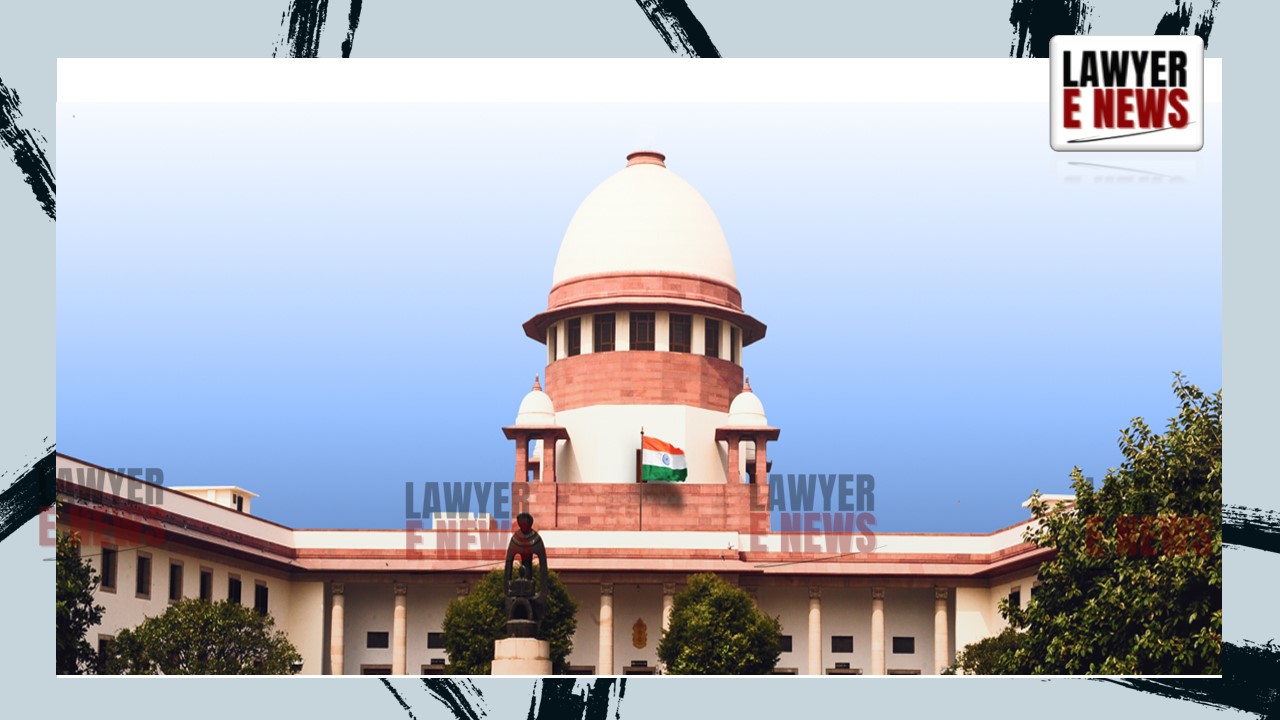-
by Admin
15 February 2026 2:36 AM



Supreme Court of India delivered a landmark judgment affirming the validity of a 1963 settlement deed. The Court ruled that acts of familial care and promises of continued support are sufficient consideration under the law, overturning a High Court decision that had reclassified the settlement as a gift deed. The plaintiffs' 2/3rd share in the disputed property was restored.
This protracted property dispute involved ancestral land owned by three brothers: Venkatarama Reddy, Venkata Reddy (alias Pakki Reddy), and Chenga Reddy, who held equal shares in a Hindu joint family property.
Chenga Reddy, having no direct heirs, transferred his 1/3rd share to his niece, Govindammal, recognizing her care for him. Coupled with her inherited share, Govindammal claimed 2/3rd of the property.
Govindammal filed a partition suit in 1995 after attempts to formalize her claim were resisted by the defendants, who argued for an oral family arrangement that allegedly divided the property equally in 1964.
Both the trial court and the appellate court upheld the settlement deed's validity, awarding Govindammal 2/3rd of the property. However, the High Court overturned these findings, deeming the deed a gift for lack of "adequate consideration."
Whether the deed was a valid settlement under law or a gift under the Transfer of Property Act, 1882.
Whether familial care and support qualify as "consideration" to distinguish a settlement from a gift.
Whether the High Court erred in overturning concurrent findings by the trial and appellate courts.
The Supreme Court reinstated the deed as a valid settlement, rejecting the High Court's classification of it as a gift.
"Love, affection, and familial care, as acknowledged in the deed, meet the legal threshold for consideration under family settlements."
Referring to the Indian Contract Act, 1872, and precedents, the Court clarified that consideration need not always be monetary or measurable in financial terms.
"In family arrangements, consideration often takes the form of reciprocal promises or acts of care and support. Such considerations are sufficient to establish the validity of a settlement deed."
The Court highlighted language from the deed that explicitly cited Govindammal's caregiving and her promise to continue this support as the foundation of the transfer.
The Court criticized the High Court for exceeding its jurisdiction under Section 100 of the Code of Civil Procedure, 1908.
"Interference with concurrent findings of fact is permissible only on substantial questions of law, none of which existed here."
The High Court's interpretation of the deed, the Supreme Court observed, was unwarranted and contrary to settled principles of law.
The Court restored the findings of the trial and first appellate courts, reaffirming Govindammal's heirs' entitlement to 2/3rd of the property. It noted:
"The High Court failed to appreciate the settled principles governing family settlements and disregarded established limitations on its appellate jurisdiction."
This decision underscores the sanctity of settlement deeds in family arrangements and clarifies that consideration in such deeds extends beyond monetary values. It further reinforces the principle that High Courts must exercise restraint when revisiting concurrent factual findings.
Date of Decision: November 14, 2024
